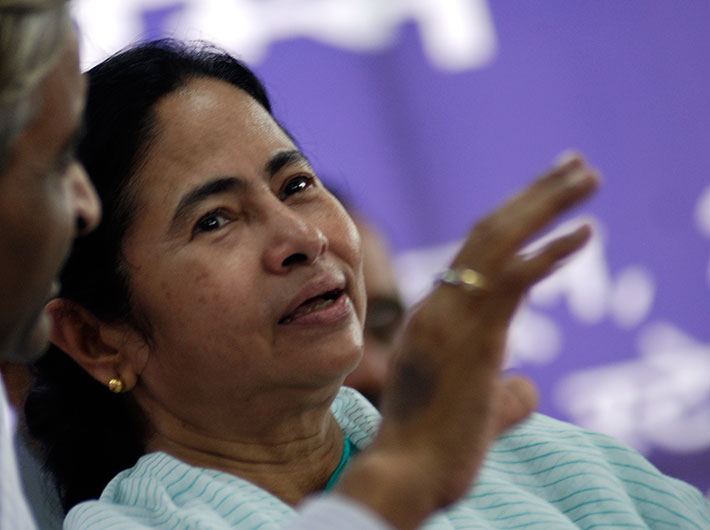Mamata's political gamble with Narendra Modi has paid off well. Now it is time to focus on the economics of the state with the new government at the centre
With Friday’s Lok Sabha election results, Trinamool Congress has scripted a massive win since its inception in 1998. It certainly calls for celebration but amidst the festivities there are concerns galore.
BJP’s increased vote share in the state did not augur well with the party supremo and chief minister of West Bengal Mamata Banerjee. While she is still miffed with the defeat of some candidates due to infighting within the party, there are bigger concerns. The Modi-Mamata war of words may have given her some mileage in her state but with the BJP government at the centre, the situation is a little precarious for the cash strapped state. West Bengal depends on the Centre for funds to meet 50 percent of its expenses.
But experts say that BJP government at the centre will not impact the economics of the state.
“Modi has come to power with a mandate and he will not want to draw the ire of the TMC chief,” says Biswanath Chakraborty, professor of Political Science, Rabindra Bharati University. He is of the opinion that Mamata due to her own political reasons will assume an anti-government stance.
“She will raise issues such as the moratorium on paying debts, development to draw attention to her own political campaign. The purpose of BJP was to gain politically from the state before the elections, which is over since it has won two seats,” he says.
Before elections, Rajnath Singh announced special packages to the state to favourably influence Mamata. But Chakraborty reminds that doles are given to the states on the basis of the packages prepared by the finance commission. “Mamata will take advantage of that and will repeatedly remind them of their promise. In a feudal system like India, it will be impossible for Modi to favour one state. Mamata will assume a staunch anti-BJP stance to gain political mileage with the minorities,” he adds.
In the Modi versus Mamata battle, the Left has been completely sidelined. Minorities had supported her in the Lok Sabha elections as they felt she has the courage to take on the Modi government. Chakraborty believes that Modi as PM will be looking for co-operation from the states and not invite their ire.
Om Prakash Mishra, general secretary of West Bengal Congress and professor of international relations at Kolkata’s Jadavpur University, says that the central government has severe and several limitations in effecting its special package for states without recommendation of finance commission.
“Central government cannot do much unless it wants to be ready to act in an arbitrary manner. This may be a question in other states as well as possibly in the court. So whatever the BJP may have said, especially Rajnath Singh, in the run up to the elections whether they are in a position to fulfil the commitment to the moratorium is doubtful,” he says.
In the past, Banerjee had repeatedly attacked the centre for not helping Bengal out of its steep financial condition. The Trinamool Congress government had consistently been asking the Congress-led centre to allow a three-year moratorium on interest payment on loan taken by the previous government.
According to a report published in Economic and Political Weekly, the out-standing debt of the WB government to the central government is set to rise to Rs 2,75,000 crore in 2014-15, making it one of the most indebted states in terms of the own tax revenue to gross state domestic product (GSDP) ratio.
Data from the Reserve Bank of India (RBI) shows that for the financial year ending March 2014, the state government budgeted state development loans of Rs 1,28,000 crore and emerged as the top borrower (Acharya 2013). The unusually high debt, now around 37.5% of the GSDP, is almost twice the average of all Indian states.

